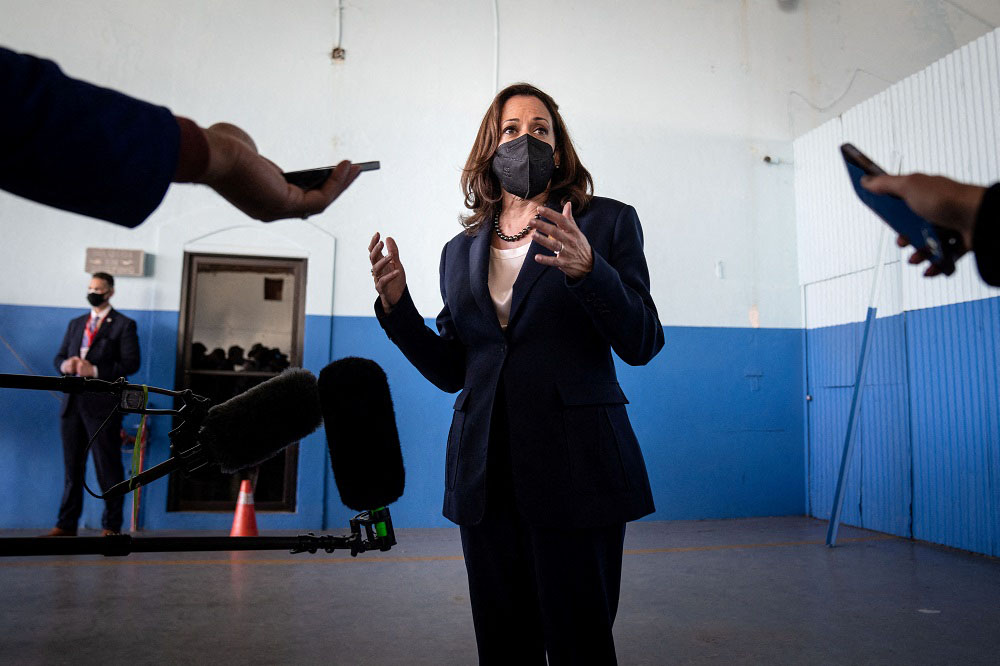TEGUCIGALPA, (Reuters) – The U.S. and Taiwanese vice presidents had a brief conversation yesterday at the inauguration of the new Honduran president, a rare encounter that is highly symbolic and likely to add to Beijing’s tensions with Washington.
The United States, like most countries, has no formal diplomatic relations with Taiwan, though its strong support for the island both politically and through arms sales is one of the main sources of Sino-U.S. friction.
U.S. Vice President Kamala Harris said she spoke with her Taiwanese counterpart, William Lai, in Honduras about their shared interest in Central America and the U.S. government’s “root causes” strategy to curb migration.
“The brief conversation that we had was really about a common interest in this part of the region and apparently Taiwan’s interest in our root causes strategy,” she told reporters, adding Lai had approached her.
Taiwan’s official Central News Agency characterised it as a “simple greeting”, saying the two “talked briefly and interacted naturally”.
It carried a picture of them standing next to each other on a stage talking, both wearing face masks, and Lai sporting a lapel pin of entwined Taiwanese and Honduran flags.
Honduras is one of only 14 countries still to formally recognise Taiwan.
Honduras’ new president, Xiomara Castro, floated the idea of ditching Taipei for Beijing in her election campaign, though on Wednesday she told Lai that Honduras is grateful for Taiwan’s support and hopes to maintain their relationship.
Castro and Lai met again yesterday, with Lai handing over a donation of supplies to fight the COVID-19 pandemic.
“I appreciate the solidarity, as well as the willingness to support us in our development agenda,” she wrote in a tweet.
Speaking after her meeting with Castro, Harris said they did not discuss China.
China has ramped up pressure to reduce Taiwan’s international footprint, saying the democratically governed island is Chinese territory with no right to state-to-state ties.
In the run-up to the November election, a visiting U.S. delegation to Honduras made clear it wanted the Central American country to maintain its Taiwan relations.
The United States has worried about growing Chinese influence in its back yard.
China last month re-established relations with Nicaragua, a neighbor of Honduras, and has openly said it is aiming to reduce the number of Taiwan’s diplomatic allies to zero.









